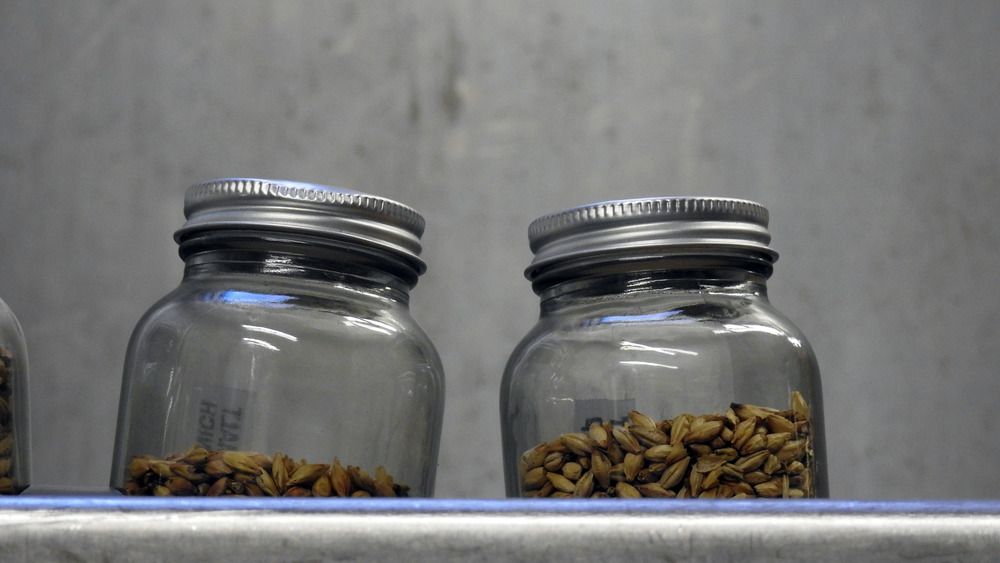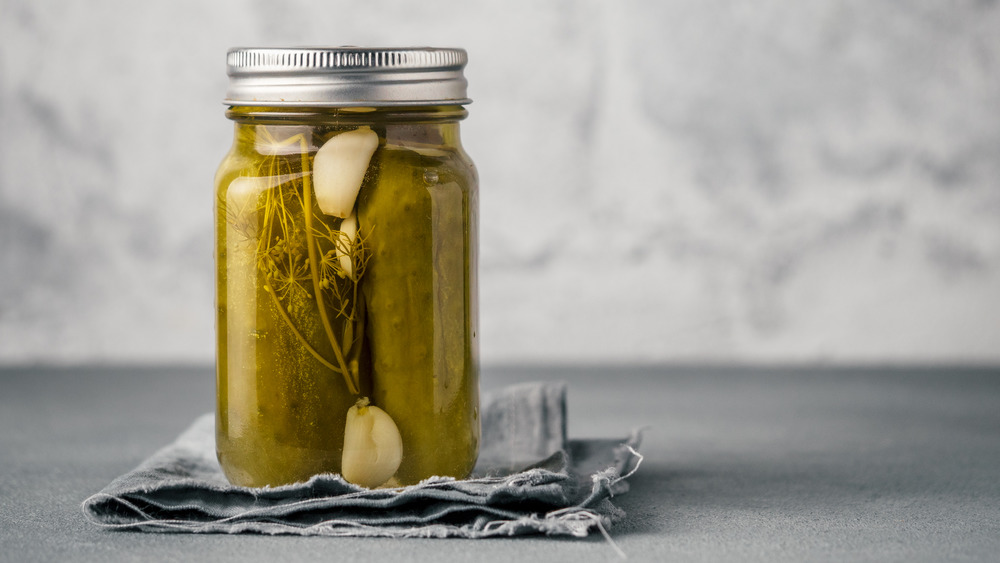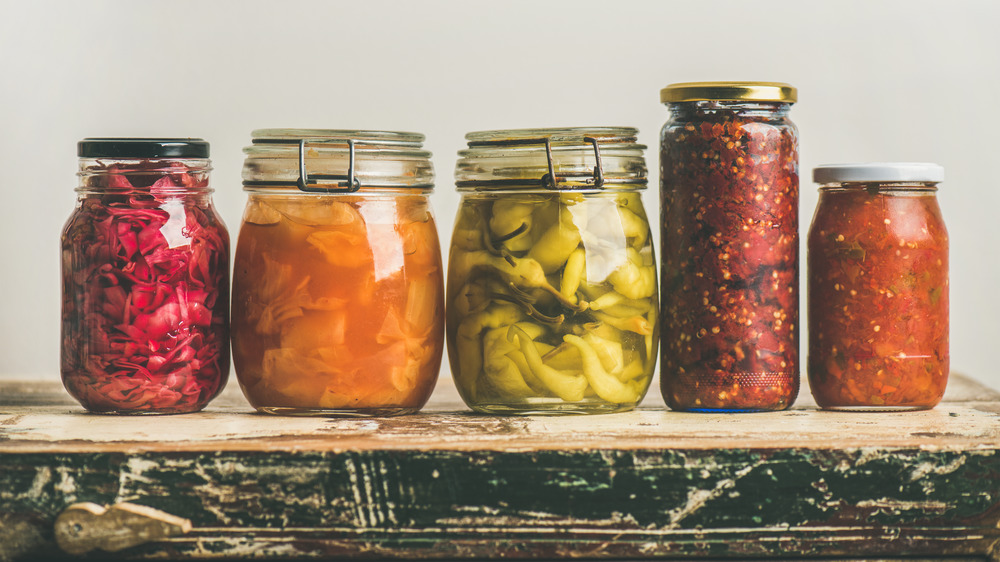The Biggest Problem With Mason Jar Lids
It's 2021, and grocery store shelves are jam-packed with some of the most ridiculous items shoppers have ever seen – take, for example, these Costco wedding cakes made from cheese. If you're lucky enough to get in and out of the store with just some old school pantry staples, then take a long look at the ingredient list on the back of your canned fruit – odds are, there are far tastier ways to preserve fresh fruit without drowning it in simple, sugary syrup.
Enter canning: the latest kitchen trend that home gardeners have shown off all over their artsy Instagrams. According to Inspiring Savings, home canning – the act of preserving your fresh foods in (often pressurized) mason jars has a lot of pros. You can save money and avoid the sketchy ingredients on most store-bought canned goods!
But there's a significant con: The mason jars themselves and their stubborn, rusty lids. Most standard lids come with two parts: a ring, and a lid. The ring is usually derived from a plated steel, meaning that liquid is not its friend – and rust, unfortunately, is (via Treehugger). Talk about a way to ruin a fresh garden salsa!
If you want to take a shot at the home canning trend yourself (or perhaps just want to start your day with an aesthetically pleasing mason jar of iced coffee), then start taking notes. The tips we're going to share will hopefully stop the rust right in its tracks.
Coat your mason jar lid in wax or olive oil to fight rust
First thing's first: When it comes to metal mason jars, skip the dishwasher! Hand-washing your mason jar lids and practicing patience while they fully dry are both key to keeping them rust-free for longer (via Wilderstead).
Of course, the best method for protecting your mason jar lids is highly dependent on what it is you're putting in them. If you're using a mason jar for a fun craft project or to DIY a new bathroom accessory, then you can easily solve the inevitable rust issue with a few chemicals. Users on Hometalk suggest reapplying a thick coat of wax or clear nail polish on the lid now and again – that way, there's a more substantial barrier between the metal and whatever liquid may seep in.
If you don't want to break out the Rust-Oleum for your soon-to-be sustainable pickle jar, we hear you! There are plenty of other options to help prevent a rusted jar lid. Take, for example, this tip from the blog Nana is Frugal: Fight moisture by coating the rings with olive oil. You don't need to wipe it off, either; Just take a cloth, dip it in some oil, and slather the inside of the ring portion. You'll have to re-apply this coating each time you wash the jars.
These options may not keep the lids looking as good as new forever, but they sure beat buying new lids each garden haul and grocery trip!
Check out some alternate rust-free mason jar lids
In addition to the whole rust issue, mason jars admittedly have another feature that is just outright annoying: the two-part lid system, which inevitably results in a metal ring or lid gone rogue. The two-part lid may be favorable for some forms of storage, such as canning, but if it's avoidable, your best bet may be to opt for a new lid altogether. Kitchn suggests ditching the old-school lids that come with your mason jar to pick up one-piece, pre-coated mason jar lids that'll stand the test of time.
Some suppliers even sell metal lids with a silicone gasket, and they're rust-proof! If you want to skip the metal, you can always try out some plastic options. Wilderstead noted a game-changing lid hack that most of us have probably never even considered: You can fit a standard mayonnaise jar lid on a standard mason jar. Grab the Hellman's and whip up some pickled onions ASAP, because now, your mason jars will be rust-free and quirky!


